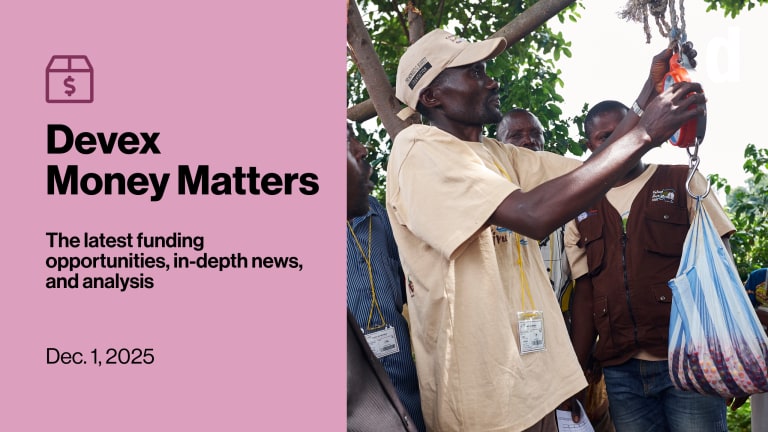Open Philanthropy aims to award $150M in new 'Regranting Challenge'

Open Philanthropy, the research and grant-making organization founded by billionaire couple Dustin Moskovitz and Cari Tuna, is aiming to either double the annual grant-making budget for an “outstanding” program at another foundation with a $150 million boost or possibly spread the grant among multiple programs that would fit that bill.
Specifically, Open Philanthropy announced that it would support one to five “high-impact programs that improve human health, facilitate economic development, and/or address climate change” at other foundations as part of its new “Regranting Challenge.”
3 ways evidence-minded donors can prioritize their giving
Open Philanthropy says it will place greater emphasis on life expectancy improvements when evaluating grant opportunities.
“We believe there are some excellent individual programs and whole foundations out there and we want to experiment with giving them more money to allocate rather than trying to copy their approaches,” wrote co-CEO Alexander Berger, research fellow Emily Oehlsen, and strategy fellow Chris Smith in a blog post this week.
Foundations must fill out an “expression of interest” form by March 15.
Open Philanthropy has provided $1.5 billion in grants since 2014 and plans to escalate its giving by providing an additional $1 billion during 2022 and 2023. The organization takes an “effective altruism” approach to philanthropy by using data and evidence to see how it can amplify the impact of every dollar given. It recently revamped the highly technical “Global Health and Wellbeing Cause Prioritization Framework” that it uses to identify grant opportunities and is placing a higher value on health impacts relative to income gains.
Since its founding, the organization has been interested in maximizing its impact and “learning as much as we can” from other grant-makers, according to the blog post. Open Philanthropy said the Regranting Challenge will allow it to learn from grant-makers that take different approaches and focus on different problems, adding funding to the work that they are already doing. It’s also a means of piloting a mechanism that would allow impactful programs to grow, the organization said.
Berger told Devex that the initiative was partially inspired by 100&Change, a John D. and Catherine T. MacArthur Foundation competition that provides a winning organization with a $100 million grant for “a single proposal that promises real and measurable progress in solving a critical problem of our time.”
However, Open Philanthropy considered that many of the best opportunities might be smaller or more experimental than would make sense for a large grant, so it decided to support effective programs for other funders that may prefer to allocate funding in “smaller chunks,” Berger said.
“We also have long seen the lack of feedback mechanisms that ensure effective grantmakers get more money to allocate as a major shortcoming in the philanthropic ecosystem,” he wrote in an email. “We thought that by allocating funding to the best funders we can find rather than just trying to copy their approaches, we could further our mission of helping others as much as we can, and experiment with creating some of those much-needed feedback mechanisms.”
Berger said it is not yet clear if Open Philanthropy would make the Regranting Challenge an annual event, but he left the door open for that possibility.
Open Philanthropy “could imagine running a similar process again on a regular basis or opening up the gates even wider to include smaller programs, or potentially helping people start new foundations altogether,” he wrote.
Search for articles
Most Read
- 1
- 2
- 3
- 4
- 5








